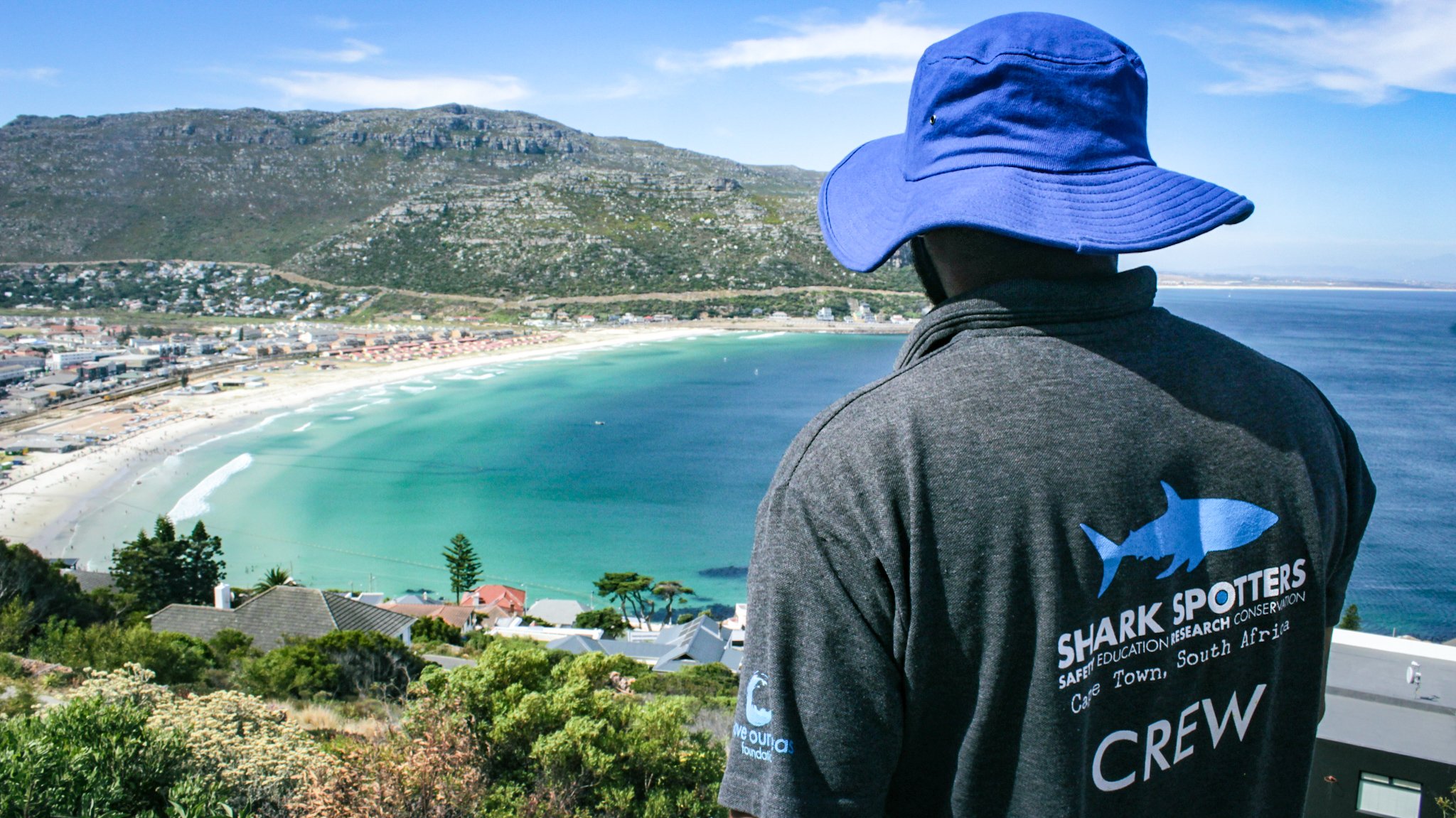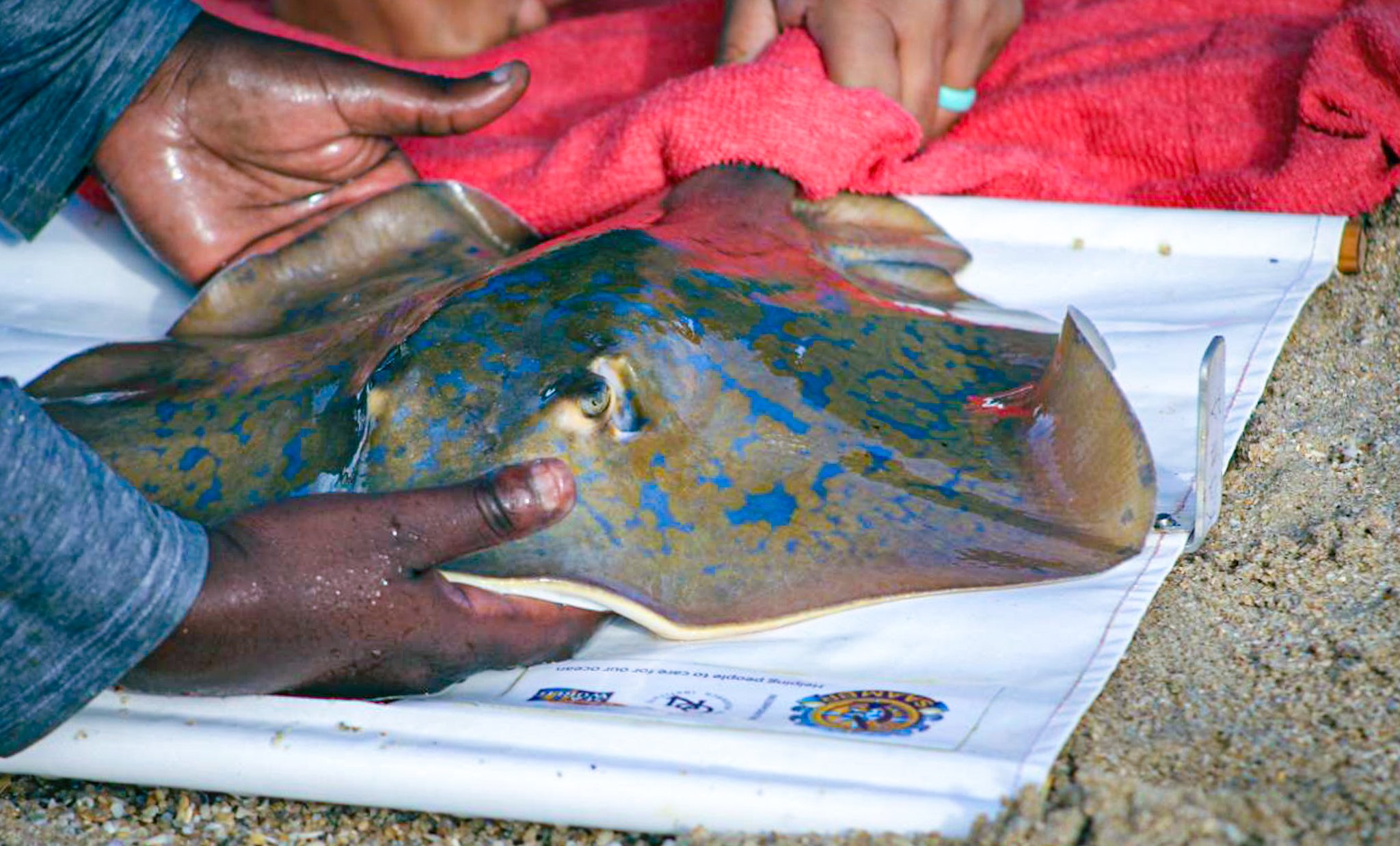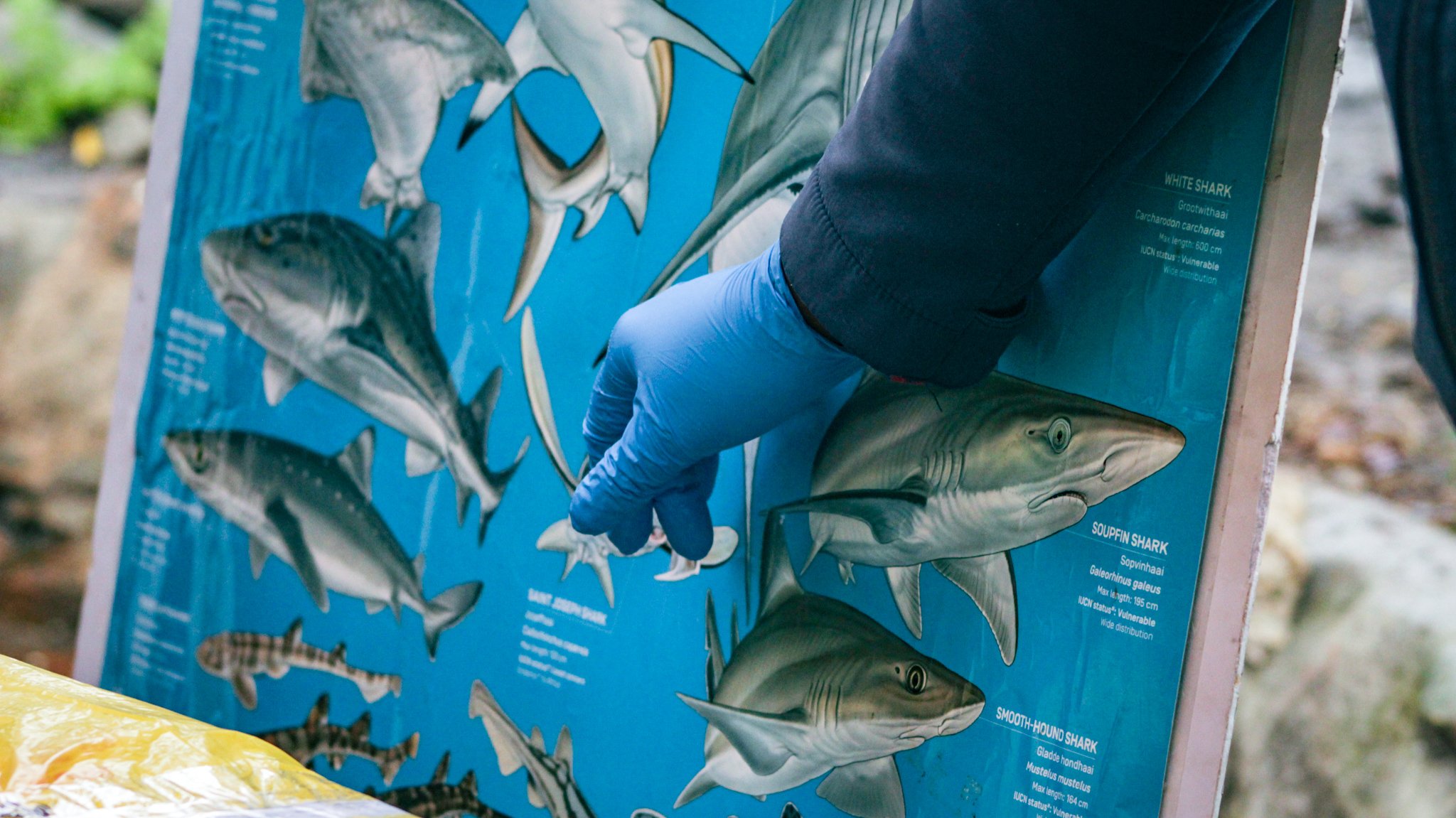WHEN THERE ARE SHARKS…
Did you know that South Africa was the first country in the world to protect great white sharks? In 1991, South Africa made the pioneering decision to halt the hunting of white sharks, aiming not only to conserve these majestic creatures but also to boost tourism. While the white shark might be the most famous shark, there are approximately 520 shark species worldwide, with 130 of them listed as threatened on the IUCN Red List.
At Shark Spotters, our organization is dedicated to conserving sharks in our oceans, with white shark research in False Bay being a key pillar of our efforts. Our pioneering shark safety and research activities have attracted international attention because of our pro-active and holistic approach to reducing interactions and conflict between recreational water users and sharks. From simple beginnings, our safety and research activities have evolved over the years and uncovered ground-breaking discoveries on white shark behavioural ecology and expanded to cover multiple species through an ecosystem-based approach.

A spotter with a view of Fish Hoek beach from the Fish Hoek lookout point. Photo © Jamila Janna
We now employ a variety of methods to study and protect multiple shark species in False Bay:
- Baited Remote Underwater Video Surveys: These surveys provide us with invaluable video footage of underwater life and sharks in False Bay and Plettenberg Bay, increasing our understanding of biodiversity and abundance of marine animals in our area.
- Acoustic Receivers as part of the ATAP (Acoustic Tracking Array Platform) Network: These receivers track tagged sharks (and other fish) as they move along the coastline. They are monitored by a network of more than 250 moored acoustic receivers spanning approximately 2200 km of the South African coastline, from False Bay in the Western Cape to Ponta do Ouro at the South Africa/Mozambique border.
- Shark and Fish ORI Tagging: This cooperative dart tagging programme helps us understand movement and growth patterns of fish through simple mark-recapture techniques.
- Sharing our findings for increased understanding and improved management: We publish our research in peer-reviewed scientific journals and share data with statutory authorities to assist in developing conservation management plans for species and habitats. We also share our findings with the general public to increase understanding, appreciation and custodianship of our marine ecosystems.

Blue stingray being measured at a fish tagging research trip. Photo © Jamila Janna
July has been dubbed Shark Awareness Month, with Shark Week on Discovery Channel captivating audiences of all ages. We thought it would be a great opportunity to reflect on the positive impact and importance of sharks in our ecosystems.
When there are sharks…
- The ecosystem is in balance: Sharks prey on various species, removing the weak and sick from populations. This helps keep prey populations balanced, which can reduce pressure on the environment.
- There is tourism and job creation: Sharks have a positive impact on tourism, attracting people from all over the country and the globe to see them in the water or watch them breach in key white shark hotspots.
- Education and awareness fosters long term appreciation: We tackle misconceptions about sharks through education and outreach efforts, fostering a deeper appreciation for these incredible animals, as well as the marine environment.
Sharks are vital to the health of our oceans and our understanding of marine ecosystems. As we celebrate Shark Awareness Month, let’s recognize the crucial role they play and continue to support their conservation locally and globally.

Sharks of False Bay. Photo © Jamila Janna
